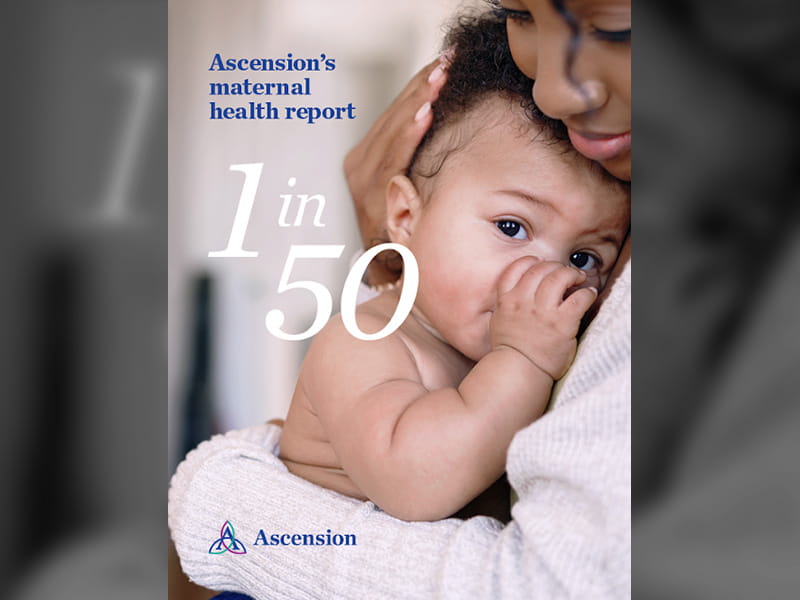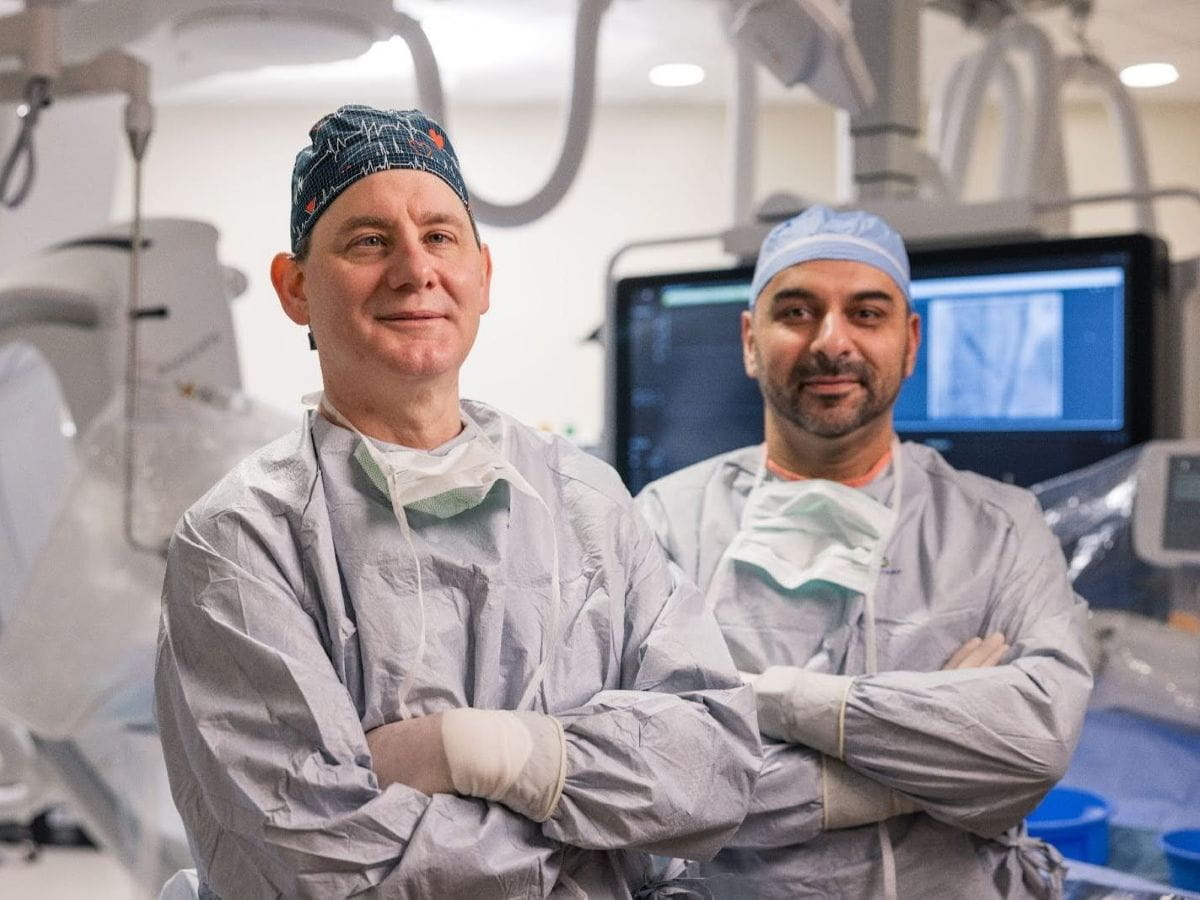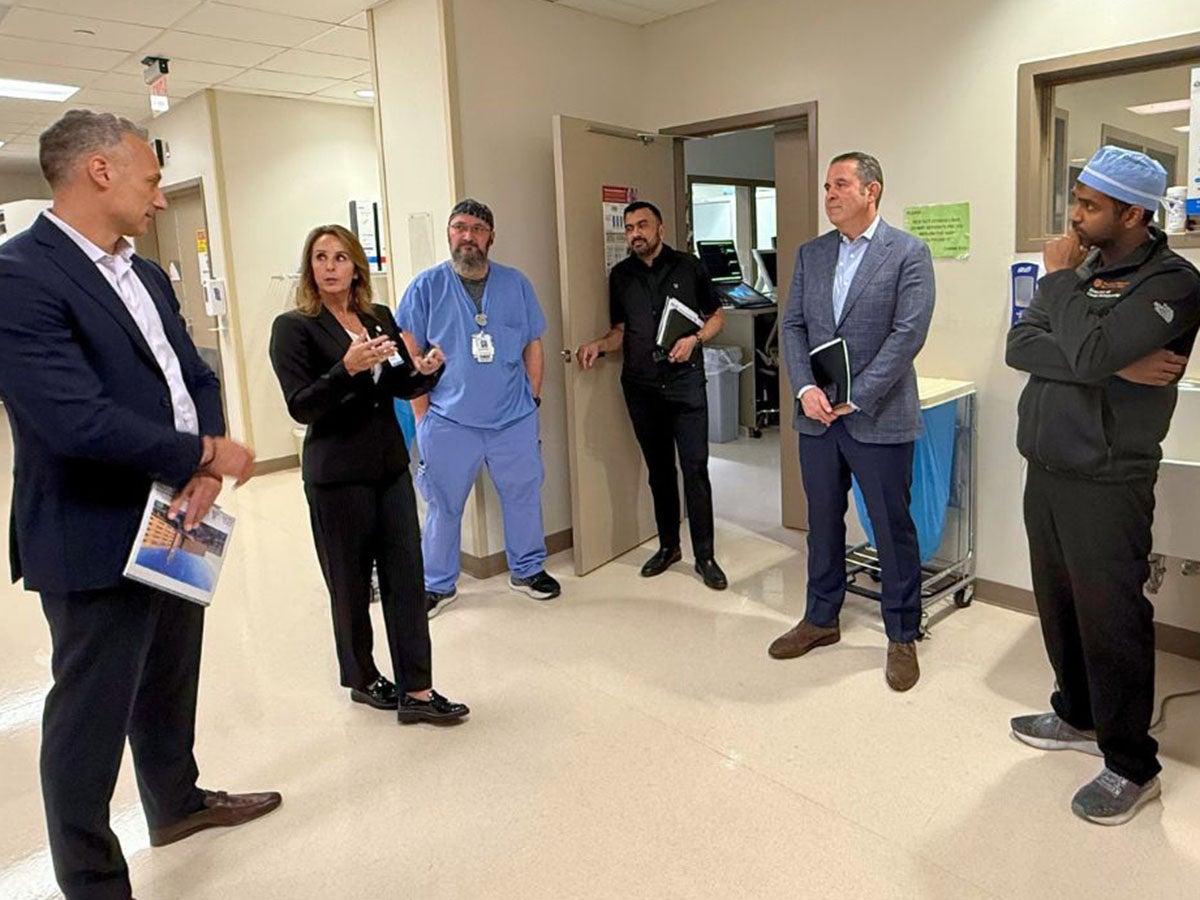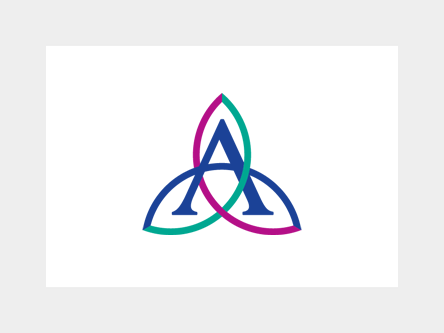Ascension, one of the nation’s largest non-profit and Catholic health systems with a Mission of delivering personalized care to all, announces the publication of its groundbreaking, 1 in 50: Ascension’s Maternal Health Report. This report offers an in-depth look into the current state of maternal health, spotlighting Ascension’s pivotal role in delivering care to a significant portion of the nation's newborns and their mothers, particularly those from underserved communities, as well as addressing the social determinants of health that often lead to disparities in care.
“Maternal health is not just an area of focus for us—it is at the core of our Mission,” said Dr. Richard Fogel, Executive Vice President and Chief Clinical Officer of Ascension. “Engaging in meaningful discussions about maternal care is key to enhancing its quality and accessibility across the country. Such conversations, however, must be rooted in responsible and balanced viewpoints that capture the full scope of the issues and complexities involved. Our top priority remains providing patients with the right care, at the right place, at the right time. It is our fundamental commitment that every mother receives holistic and unparalleled care, setting a new standard in maternal health.”
Ascension’s maternal health highlights
- Over the past five years, Ascension’s birthing units across the country have delivered between 72,000 and 78,000 babies annually, representing approximately two percent (1 in 50 babies) of the 3.6 million babies born in the U.S. each year.
- In 2023 alone, approximately 41.53% of Ascension’s maternal patients (nearly 2 in 5) had Medicaid coverage and 1.65% were self-pay.
This report unveils Ascension's industry-leading maternal health outcomes, which strongly outperform the national averages. Based on an independent study of PC-07, a nationally reported measure of Severe Obstetric Complications, the outcomes are as follows:
- Ascension’s PC-07 maternal morbidity and mortality rate for all patients, from October 2022 to 2023, was 20.48% below the national average, standing at 198 per 10,000 deliveries compared to the national average of 249 per 10,000 deliveries (p<0.00001).
- In the same timeframe, among Black/African American patients, Ascension’s PC-07 maternal morbidity and mortality rate was significantly lower than the national comparator group by 32.60%, standing at 244 per 10,000 deliveries compared to the national average of 362 per 10,000 deliveries (p<0.00001).
- Ascension maternal mortality rates for 2021 were 21% and 41% lower than U.S. maternal mortality rates for all patients and for Black/African American patients respectively. Although more recent national benchmarks have yet to be made available, Ascension’s 2022 rates were 48% and 17% lower than 2021 rates for all patients and for Black/African American patients respectively, signaling continued progress in reducing maternal mortality rates.
"Since 2000, the U.S. has seen a significant rise in maternal mortality rates, signaling a critical juncture for maternal health. At Ascension, we are implementing vital initiatives and programs aimed at improving maternal health outcomes,” said Joseph Impicciche, JD, MHA, Chief Executive Officer of Ascension. “While there is still work to be done to continue improving maternal health outcomes, our unwavering commitment and purposeful initiatives are driving remarkable advancements. By focusing on targeted programs, engaging with our communities and making strategic investments, we are doing more than just providing care; we are actively shaping a future where every mother and child has the opportunity for a healthy start."
Ascension’s key maternal health initiatives
- Maternal Health Social System Initiative (MHSSI) assists patients with non-clinical needs, including appointment accessibility support.
- As an initial launch, maternal health navigators have been deployed in several Ascension markets reaching approximately 1,500 mothers with high-risk cases. These dedicated healthcare professionals support patients through postnatal/postpartum care and offer prenatal-specific health education, breastfeeding support, new mother resources and more.
- The MHSSI program has already resulted in significant improvements in term birth rates.
- Postpartum Nudge Program addresses the critical link between hypertension, heart issues and maternal mortality.
- Utilizing the prevalence of smartphones, this initiative engages patients who voluntarily opt into this program, through simple, yet vital, inquiries about their health status, focusing on those with hypertension. By sending regular, targeted text messages for hypertension management and providing direct lines of communication to healthcare providers, the program aims to streamline disease management for patients that voluntarily participate in this program during and after pregnancy while reducing hospital readmissions.
- Neighborhood Resource website, an innovative tool connecting individuals to local support services, including financial services, food pantries, transportation and more, exemplifies Ascension’s approach to holistic care.
- More than 300,000 patients and community members have used Neighborhood Resources since its launch in 2021.
- Social Determinants of Health (SDOH) screening tool compiles information, from individuals that voluntarily opt into this program, about various social and environmental factors and provides critical data to better understand the impacts on health outcomes.
- Over two million SDOH screenings have been collected since 2020.
- Food-Related Initiatives, access to nutritious food can be a barrier to a healthy pregnancy, as chronic health conditions such as diabetes, high blood pressure, and obesity can further complicate maternal outcomes. Ascension is expanding its charitable investment in food-related solutions, aiming to double it by 2023.
- Through innovative initiatives like Food is the Best Medicine, we are directly targeting postpartum women, providing the equivalent of 120 nutritious meals and fresh foods to women who identify as food insecure during the critical 8-week postpartum period.
- More broadly, we have served 80,000 unique individuals experiencing food insecurity across 11 states, investing $1.2 million since 2021.
Ascension’s dedication to improving maternal health extends beyond clinical outcomes, with significant efforts focused on addressing social determinants of health, community engagement and enhancing access to care.
To access Ascension's full maternal health report and learn more, please visit https://about.ascension.org/our-work/ascension-maternal-health-report.
Ascension encourages healthcare professionals, community leaders and the general public to review the report and join in the conversation to improve maternal health outcomes for all. This report is not just a testament to Ascension’s achievements but a call to action for continued collaboration and innovation in maternal healthcare.




